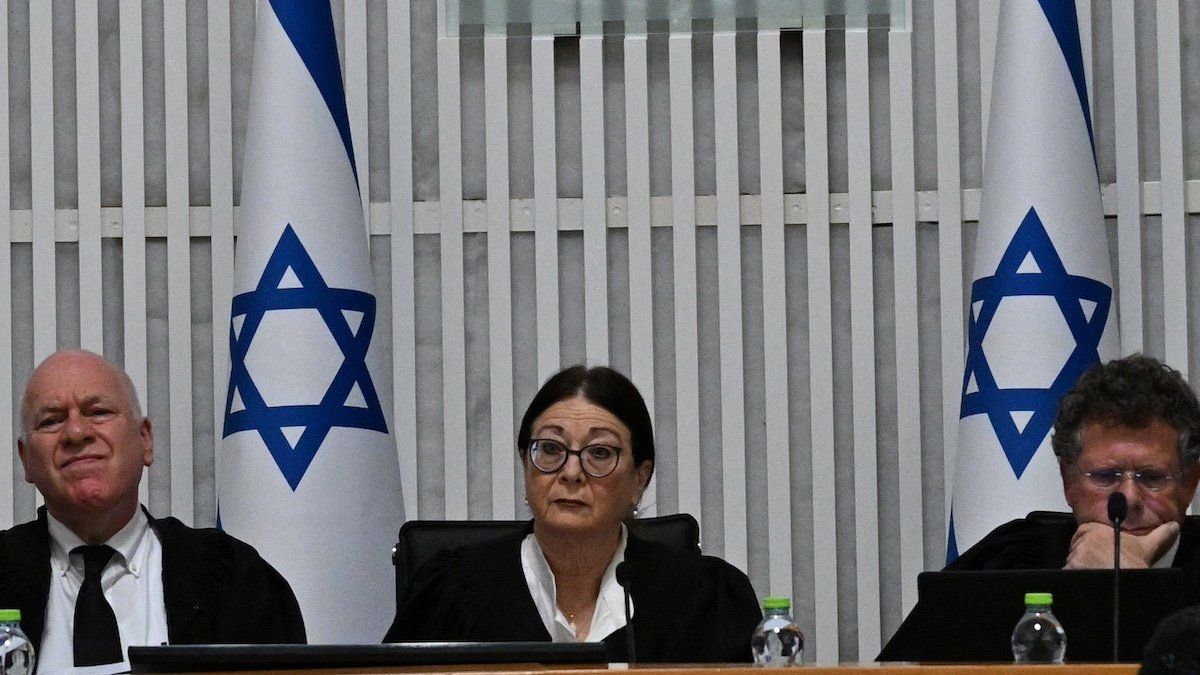FILE PHOTO: President of the Supreme Court of Israel Esther Hayut and all fifteen justices assemble to hear petitions against the reasonableness standard law in the High Court in Jerusalem, on Tuesday, September 12, 2023.
Five months after Hamas' deadly Oct. 7 attack, Israel’s public defenders have suggested they aren’t prepared to represent the accused terrorists. But with Israel’s human rights record literally on trial, some are calling for a public proceeding to demonstrate Israel’s commitment to the rule of law.
Background: When Israeli agents captured Nazi war criminal Adolf Eichmann in Argentina in 1960, his trial was broadcast to show precisely how Nazi Germany coordinated and executed its plan to extinguish the Jewish people. No Israeli lawyer would defend Eichmann, but a German attorney took the case, and advocates of civilian trials for Hamas suspects say the process could be a model.
Dilemma: Israel detained hundreds of people on Oct. 7, and the strength of evidence to prosecute varies. First responders focused on saving survivors, not on collecting forensic evidence for trial. While a special police unit has been poring over thousands of hours of video and other evidence, it is unclear whether trials will proceed for each of the accused.
Simcha Rothman, who heads the Knesset’s subcommittee examining the question, said he’d rather circumvent civilian courts and either process detainees through military tribunals or hold them indefinitely without trial, Guantanamo Bay-style.